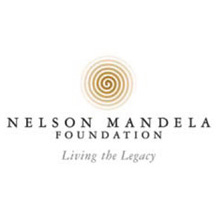
March 27, 2009 – The Nelson Mandela Foundation’s Memory Programme and the South African History Archive (SAHA) are convening a dialogue forum on the theme “Reconciliation and the Work of Memory in Post-apartheid South Africa”.
The purpose of the dialogue, organised in partnership with the Rosa Luxemburg Foundation, is to determine the effectiveness of memory in the post-apartheid era in South Africa. The dialogue is to be held at the Foundation on Thursday and Friday next week. Registrations have closed and a full house is expected.
“At the Foundation we have this thesis that a lot of critical social problems are rooted in an inability to properly deal with the past,” said the Foundation’s head of Memory, Verne Harris. “We are hoping to use this dialogue to determine whether this is valid. If it is then what comes out of the dialogue will inform our continued work.”
Judge Kate O’Regan, Professor Ciraj Rassool, Professor Xolela Mangcu and Human Rights Commissioner Jody Kollapen will each be presenting a paper around one of the themes of justice, race, rights and power.
Each session will open with a paper, after which a commissioned respondent will respond and initiate discussion moderated by a facilitator.
South Africa received international praise for the way it dealt with the atrocities of apartheid. The dialogue forum will challenge South Africa’s exemplary status in this regard.
The forum will examine how effective memory work has been in South Africa since the apartheid era, especially because social cohesion has proved to be elusive.
“What we are confronting is a society that is profoundly damaged,” said Harris. “It was something we were aware of, which is why we convened the Truth and Reconciliation Commission and became involved in a range of processes, like land restitution, but we didn’t realise how deeply-rooted the damage is. So whether you’re talking about road rage or violent crime, xenophobia or domestic violence, we believe that unfinished business from the past is the root of the problem.”
The programme is available as a downloadable PDF.